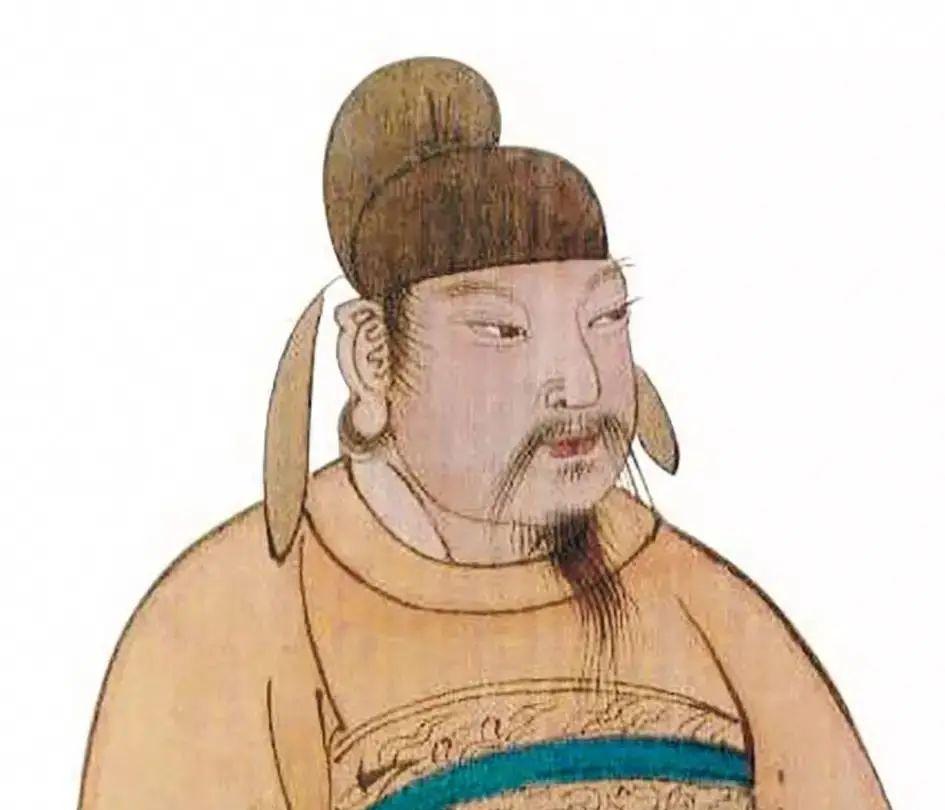There are some emperors in history who are incompetent in governing the country, but they have superhuman artistic talents
It's a real creation
Ask jun can have a few sorrows, just like a river of spring water flowing east
Li Yu, the lord of the Southern Tang Dynasty
Undoubtedly one of the representative figures

Li Yu (937-978), whose initial name was Congjia,Chongguang (重光), was the sixth son of the Lord of the Southern Tang Dynasty. A native of Xuzhou. Song Jianlong ascended the throne in Jinling in the second year (961) and reigned for fifteen years, and was known as Li Hou lord. By the time he ascended the throne, the Southern Tang had already served Song Zhengshuo and was at peace in a corner of Jiangnan. In the seventh year of Song Kaibao (974), Song Taizu repeatedly sent people to the north, but he could not resign. In October of the same year, Song soldiers attacked Jinling from the south. In November of the following year, the city was destroyed, and the lord of the city surrendered, was captured in Beijing, and was given the title of Marquis of Disobedience. Emperor Taizong ascended the throne and was enfeoffed as the Duke of Longxi Commandery. In the third year of taiping revival (978), Qixi was his forty-second birthday, and Song Taizong hated him for having the words "the homeland cannot look back at the moon and mingzhong", and ordered people to poison him to death with medicine at the banquet. He was posthumously enfeoffed as King wu and buried in Luoyang.
During Li Yu's reign, he had always been humble to the Song Dynasty, and when he was young, he contributed, and the government was exhausted. But he still did not want to cheer up, flashy and extravagant, superstitious Buddhism, and finally destroyed by the Song. He was a politically mediocre and incompetent emperor, but he had many artistic talents, such as calligraphy, good painting, proficiency in musical rhythms, poetry and literature, and the achievement of words was particularly high. The style of the post-main pre-word composition is beautiful and soft, and it does not get rid of the habit of "between flowers". After the fall of the country, in the period of house arrest of "washing his face with tears at the end of the day", he sang a song of blood after weeping, so that the king of the fallen country became the "King of the South" (Qing Shenxiong's "Ancient and Modern Words") of the ancient world. These later lyrics, desolate and tragic, and far-reaching in artistic conception, have laid the groundwork for Su Xin's so-called "extravagant" school, and have been a great master in the history of words, as Wang Guowei's "Words on Earth" said: "Words to Li Hou Lord and the vision began to be big, and the feelings were deep. As for the clarity of his sentences and the harmony of his rhymes, it is even more unprecedented. After the main set, it has been lost. Of the forty-four extant poems, several of which were written by others or were written by others, only thirty-eight of which can be determined.
For his calligraphy, he passed on the Second King's penmanship, called the "stirrup pulling method", and was good at writing. Tao Gu's "Qing Yilu" Zeng Yun: "After the Lord's good book, it is in the shape of a vibrating pen and a curved pen, and it is as strong as a cold pine frost bamboo, which is called 'golden wrong knife'." Writing big characters does not do anything, and the volume of the book can be satisfactory, and the world is called 'the book of the placket'." His inkblots have been rarely circulated, and a line title on the Southern Tang Dynasty painter Zhao Gan's "The First Snow Map of the River Line" (now the National Palace Museum in Taipei) is considered to be his original handwriting. He once showed the calligraphy works collected by the Southern Tang Secret House and ordered Xu Xuan to engrave them into the Shengyuan Thesis for people to enjoy and practice, which is the earliest known Fa-ti. It no longer exists.
The inkblot of the Book of Rites, also known as the "Entering the Country to Know the Teachings", was passed down as Li Yushu. There is a mi yu ren pa at the back of the post. In 1975, it was published in the Hong Kong "Book Spectrum" magazine.
Interpretation: Into its country. Its teachings can be known also. It's also for people. Gentle and generous. Poetry teaches also. Alienate the far away. Book teaching also. Broad-minded Yiliang. Happy to teach also. Jing Jing subtle. Easy to teach also. Respectfully. Etiquette also. Rhetoric. Spring and Autumn Teachings also. The Loss of Foolishness in The Poetry. The Book of Falsehoods. The loss of luxury. Easy to lose. Loss of etiquette. The Fall of Spring and Autumn. It's also for people. Gentle and generous without foolishness. Then deeper than the poet also. Alienation is far away without false accusations. Then deeper than the book's also. Broad and easy to be good and not luxurious. Then deeper than the pleasurers also. Quiet and subtle without thieves. Then deeper than the easy one also. Respectful and respectful without annoyance. Then deeper than the liturgical also. Words are more chaotic than things. Then deeper than the Spring and Autumn also. (Recorded from the Book of Rites · (Partial)
into its country. Its teachings can be known also. It's also for people.
Teach also. Broad and easy to liang. Le teach also. Quiet
small. Easy to teach also. Respectfully. Etiquette also. genus
The misfit of the book. The loss of luxury. Easy to lose.
also. Gentle and generous without foolishness. It is deeper than poetry
The one is also hidden.